Day Totals: 16 hrs, 7.1 kms
Next morning I'm ready to continue on with my adventure
. First order of business is to find a place to parkbench in Petit Valley. With nothing but narrow streets and walled in houses, it doesn't seem like it has any really good parkbenching spots... so I decide to just climb up into the jungle behind the guesthouse. Figure I'll need a jungle videoclip at some point. There's a lot of trash back there, but it still feels mildly exotic.
Grabbing a cup of coffee before heading out, I get to talking with a Venezuelan fellow who's staying at the hostel. He gives me an earfull on how dire things have become in Venezuela.
"The economy is in shambles. You have to wait in line for hours--even days just to get the basics from the government shops, and even then you might not find them... Trinidad is paradise... there's everything here and everything is run so efficiently. Why can't we have that in our country? We have so many natural resources!"
"How dangerous would it be for me to visit?"
"There's practically no security, and as a foreigner alone in the city, you are almost certain to be robbed"
As he continues to describe his country, I think back to conversations I've had with people in former communist countries in Europe like Bulgaria, Armenia, Bosnia, Hungary
... There the description usually was "under communism, we lacked freedom, but we had jobs and security" For all their faults, in those countries it seems like the governments did actually try to create a functional system.
In Venezuela, it doesn't seem like Hugo Chavez was trying to create a functional communist system... just give free stuff to the poor so they would support him, with no real long term plan--and now the country is paying for it.
I have fond memories of my trip there with my grandfather in 99 (right after Chavez rose to power), seeing hardworking farmers in the highlands not only surviving but prospering with their intensive vegetable plots... it hurts to think of that country descending into chaos.
But now it's time to turn my mind to other things.
Next I'm headed on up the coastline towards the northwestern tip of the country where the plan is to meet up with Shaun, my couchsurfing host
. I have to switch minivans at the main highway, where I take a little time to wander around a beautiful mall, with fountains and glass ceiling, still thinking of my conversation with the Venezuelan...
I hop in a collective taxi and on up the village past forest, industrial structures, and a couple of small towns, until I reach the yacht port where Shaun is docked.
I reach the foodshop at the edge of the water where we'd agreed to meet. The only problem? Well... I'd kind of assumed that Trinidad would be like Morocco and other countries that still have public phones and cybercafes. But no, almost universal smartphone ownership here has rendered those businesses obsolete. I still haven't embraced the smartphone concept--I guess I'm worried that once I get one, I'm going to become dependent on it... and my simple American phone won't work here.
I thought of just buying a simple cell phone here--but I've been told that the SIM card size may not be compatible on the other islands
...
I head into the shop, and ask one of the employees if I I can use their phone and pay them for the minutes, finally the manager comes and kindly allows me to use the shop phone for free.
I go outside and wait, I soak in my first images of yachtie society. Seems like quite a mix of people. A gorgeous young girl in a bikini is dropped off by a speedboat taxi from one of the yachts. Nearby, a sunburned, scruffy looking British chap complains to a middle aged European lady about how unhappy he is.... I guess I've kind of had the image in my mind that just rich folks had yachts...
Finally Shaun arrives, rowing an inflatable raft. I'm a little embarrassed at having made my first Couchsurfing host have to work so hard just to pick me up (and his boat is a long ways out) but Shaun is a good sport about it, we buy a few groceries and head out to sea again.
Shaun tells me a bit about himself
. And it's quite an extraordinary story. He grew up in a mining town in the South African desert... but the mining life was not for him. He was a 2nd lieutenant in an airbourne division in the South African military and learned some extreme survival skills, skills which he would use later in life on some amazing adventures--like cycling across the Kalahari and other nearly uninhabited deserts and offtrail hiking through Eastern Africa.
Then, at some point, he decided to switch to sea travel, worked on different boats until he'd gained the necessary skills, then bought his own yacht and now earns his living independently at sea.
"I don't have an address or a bank account" He tells me. "It's not a lucrative lifestyle, but I can make do. There's just no way I could do the typical 9-5 thing"
Suddenly "living off the grid" has a whole new meaning. Before this phrase conjured images of some lonely guy in a cabin in Alaska, or a homeless wanderer in Europe, like Freddy who I met in Ventimiglia
. But this is a whole different level: Shaun can literally travel around the world without needing a bank account or being chained to "the system". In fact, he doesn't even need any fossil fuel!
I feel like my eyes have been opened to a whole new world, a world where you can be connect or disconnect from "The System" at will... where you are in charge of your destiny. I've definitely got to learn more about this.
Shaun goes on to tell me a bit more about his present life and future plans. Despite being so free and independent, his life in not self-centered, nor is it aimless. He has a sort of "life plan", which includes a gradual trip around the world, with many adventures along the way. He's actively concerned about the environment, and he develops relationships with people wherever he goes. He earns his bread and butter several ways: sometimes he delivers yachts from point A to B for customers, sometimes he takes people on tours (he invites me for a 3 week trip up the Orinoco Delta, which sounds quite tempting
....) He even does a little writing for magazines about some of the places he's explored.
His yacht is quite self-sufficient, with a solar panel for electricity, rainwater collection... he can catch fish out at sea... in the Orinoco marshes he even does some foraging for edible plants...
Our conversation is interrupted by a visitor, a portly fellow with a shaggy head of hair and a heavy German accent stops by for a visit. He immediately starts off on a wild tale about taking a tourist up the Congo River, being betrayed by his guide and barely making it back alive... Now he's looking for odd jobs repairing other people's boats.
"He hasn't left the harbour in years" Shaun later tells me.
Shaun points out some of our "neighbors". "That's a German mother and her son. He was born on the boat 25 years ago. The father died of a heart attack on the boat--so now it's just the two of them
."
"There's another couple that are leasing a yacht to do sex tours for wealthy clients. But they're trying to get out of that line of work, and have come on hard times financially. A lot of unusual lifestyles around here."
Shaun continues, "we yachties are, in a way, like family to each other. When people heard about that couple's hardship, they pitched in to buy them groceries."
Shaun is heading to shore, so I go along to get back to "my" world the world of hiking and parkbenching. As I hike along the coast as the sun sets, I ponder on what I have experienced today.
During my journeys through different cultures and communities, I'm constantly asking the question, "what will happen to this community when civilization falls apart?" Usually my conclusion is there will be suffering, death and chaos, as most people have lost those survival skills needed once the crutches of modern civilization are yanked away
. Occasionally I've discovered "Shangri-las" tucked away... isolated, self-sufficient communities who will be able to go on living pretty much the same way they are, even if the rest of the world falls apart.
Now I've discovered another culture that will not only survive, but prosper, if/when modern civilization collapses. See, no matter what happens in the world, we will always need people who can grow food and people who can sail the seas. Perhaps as traders, ferrymen, pirates or warriors--but their skills will definitely be in demand. Plus, they will have the advantage that, if things get really get bad in one part of the world, they can simple set sail to another part of the world... while the rest of us will most likely be stuck with no more fuel for our cars or airplanes...
Sailors have been the backbone of civilization for the last 7,000 years, and I'm pretty sure they will be for many milleniums more. Much respect for these guys.
Finally, I head back to Chaguaramas, where Shaun picks me up. We head back to the boat, chat a bit more, then I enjoy my first night being rocked to sleep by the waves.
1905. The People who Live at Sea
Thursday, January 29, 2015
![]() Chaguaramas, Trinidad and Tobago
Chaguaramas, Trinidad and Tobago
Other Entries
-
1151894 Factory in the Middle of Town
Oct 07114 days prior Roaring Spring, United Statesphoto_camera15videocam 0comment 0
Roaring Spring, United Statesphoto_camera15videocam 0comment 0 -
1161895 Back into the Mountains
Oct 09112 days prior Martinsburg, United Statesphoto_camera14videocam 0comment 0
Martinsburg, United Statesphoto_camera14videocam 0comment 0 -
1171896 Why are People Dying of Cancer Here?
Oct 09112 days prior Saxton, United Statesphoto_camera12videocam 0comment 0
Saxton, United Statesphoto_camera12videocam 0comment 0 -
1181897 Clean Mountain Water
Oct 09112 days prior Coalmont, United Statesphoto_camera4videocam 0comment 0
Coalmont, United Statesphoto_camera4videocam 0comment 0 -
1191898 Hiking in the Dark
Oct 09112 days prior Dudley, United Statesphoto_camera3videocam 0comment 0
Dudley, United Statesphoto_camera3videocam 0comment 0 -
1201899 The Collapsing Mine Town
Oct 15106 days prior Broad Top, United Statesphoto_camera8videocam 0comment 0
Broad Top, United Statesphoto_camera8videocam 0comment 0 -
1211900 The Forgotten Valley
Oct 15106 days prior Cassville, United Statesphoto_camera12videocam 0comment 0
Cassville, United Statesphoto_camera12videocam 0comment 0 -
1221901 Same Name, Different World
Oct 15106 days prior Saltillo, United Statesphoto_camera5videocam 0comment 0
Saltillo, United Statesphoto_camera5videocam 0comment 0 -
1231902 My New Favorite Swimming Hole
Oct 15106 days prior Three Springs, United Statesphoto_camera39videocam 0comment 0
Three Springs, United Statesphoto_camera39videocam 0comment 0 -
124Post-visit: The Rest-stop Town
Dec 0159 days prior McConnellsburg, United Statesphoto_camera19videocam 0comment 0
McConnellsburg, United Statesphoto_camera19videocam 0comment 0 -
125Post-visit: Ponderings on our 15th President
Dec 0159 days prior Mercersburg, United Statesphoto_camera24videocam 0comment 0
Mercersburg, United Statesphoto_camera24videocam 0comment 0 -
126Post-visit: the Covered Bridge
Dec 0258 days prior Greencastle, United Statesphoto_camera13videocam 0comment 0
Greencastle, United Statesphoto_camera13videocam 0comment 0 -
127Post-visit: The Hunter Gatherer
Dec 0357 days prior Saint Thomas, United Statesphoto_camera19videocam 0comment 0
Saint Thomas, United Statesphoto_camera19videocam 0comment 0 -
128Postvisit: Back in Chambersburg
Dec 0951 days prior Chambersburg, United Statesphoto_camera0videocam 0comment 0
Chambersburg, United Statesphoto_camera0videocam 0comment 0 -
129Post-visit: Remembering 1994
Dec 1050 days prior Chambersburg, United Statesphoto_camera28videocam 0comment 0
Chambersburg, United Statesphoto_camera28videocam 0comment 0 -
1301903. First Impressions of the Caribbean
Jan 281 day prior Port of Spain, Trinidad and Tobagophoto_camera30videocam 0comment 0
Port of Spain, Trinidad and Tobagophoto_camera30videocam 0comment 0 -
1311904. Hiking in the Tropics
Jan 281 day prior Petit Valley, Trinidad and Tobagophoto_camera7videocam 0comment 0
Petit Valley, Trinidad and Tobagophoto_camera7videocam 0comment 0 -
1321905. The People who Live at Sea
Jan 29Chaguaramasphoto_camera33videocam 0comment 0 -
1331906. A Delicious Lunch
Jan 301 day later Carenage, Trinidad and Tobagophoto_camera5videocam 0comment 0
Carenage, Trinidad and Tobagophoto_camera5videocam 0comment 0 -
1341907. A City with No Hotels
Jan 301 day later San Fernando, Trinidad and Tobagophoto_camera6videocam 0comment 0
San Fernando, Trinidad and Tobagophoto_camera6videocam 0comment 0 -
1351908. Flying into a Mini-country
Jan 312 days later Calliste, Grenadaphoto_camera11videocam 0comment 0
Calliste, Grenadaphoto_camera11videocam 0comment 0 -
1361909. The Musician-Painter
Jan 312 days later St. George's, Grenadaphoto_camera38videocam 0comment 0
St. George's, Grenadaphoto_camera38videocam 0comment 0 -
1371910. Kim's Organic Cocoa Farm
Jan 312 days later Nonpareil, Grenadaphoto_camera21videocam 0comment 0
Nonpareil, Grenadaphoto_camera21videocam 0comment 0 -
1381911 Starting the Hike
Feb 013 days later Grand Roy, Grenadaphoto_camera10videocam 0comment 0
Grand Roy, Grenadaphoto_camera10videocam 0comment 0 -
1391912 My First Beach Discovery
Feb 013 days later Mount Nesbit, Grenadaphoto_camera10videocam 0comment 0
Mount Nesbit, Grenadaphoto_camera10videocam 0comment 0 -
1401913 Sunday in Grenada
Feb 013 days later Gouyave, Grenadaphoto_camera10videocam 0comment 0
Gouyave, Grenadaphoto_camera10videocam 0comment 0 -
1411914 Encounter with the Farmer
Feb 013 days later Maran, Grenadaphoto_camera10videocam 0comment 0
Maran, Grenadaphoto_camera10videocam 0comment 0 -
1421915 Town vs Village
Feb 013 days later Victoria, Grenadaphoto_camera15videocam 0comment 0
Victoria, Grenadaphoto_camera15videocam 0comment 0 -
1431916 Back at the Plantation
Feb 013 days later Waltham, Grenadaphoto_camera8videocam 0comment 0
Waltham, Grenadaphoto_camera8videocam 0comment 0 -
1441917 The Waterfall
Feb 024 days later Concord, Grenadaphoto_camera23videocam 0comment 0
Concord, Grenadaphoto_camera23videocam 0comment 0 -
1451918 The Sunken Ship
Feb 024 days later Brizan, Grenadaphoto_camera7videocam 0comment 0
Brizan, Grenadaphoto_camera7videocam 0comment 0 -
1461919 The Marshes
Feb 024 days later Happy Hill, Grenadaphoto_camera8videocam 0comment 0
Happy Hill, Grenadaphoto_camera8videocam 0comment 0 -
1471920 An Actual Parkbench
Feb 024 days later Fontenoy, Grenadaphoto_camera10videocam 0comment 0
Fontenoy, Grenadaphoto_camera10videocam 0comment 0 -
1481921 The Arawak Stone Carvings
Feb 035 days later Duquesne, Grenadaphoto_camera10videocam 0comment 0
Duquesne, Grenadaphoto_camera10videocam 0comment 0 -
1491922 Heading Inland
Feb 035 days later Chantimelle, Grenadaphoto_camera6videocam 0comment 0
Chantimelle, Grenadaphoto_camera6videocam 0comment 0 -
1501923 The North Shore
Feb 035 days later Sauteurs, Grenadaphoto_camera10videocam 0comment 0
Sauteurs, Grenadaphoto_camera10videocam 0comment 0

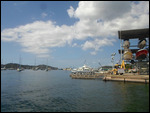
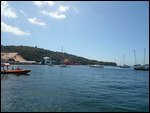
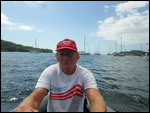
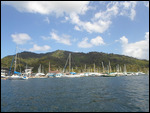
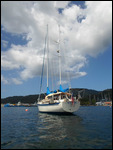
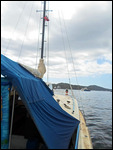
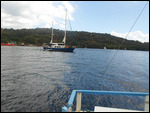
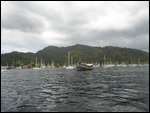
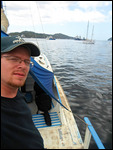



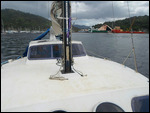
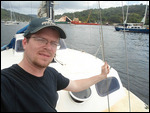
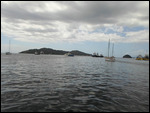
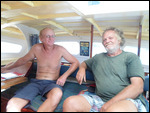
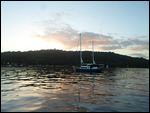
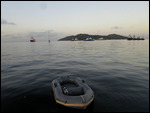
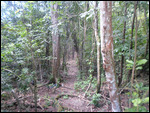
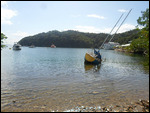
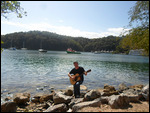
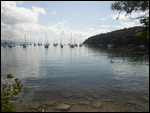
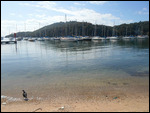
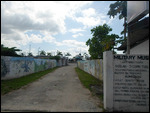
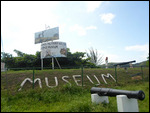
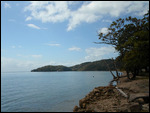
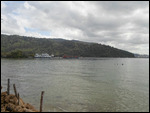
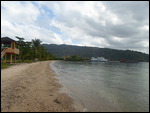
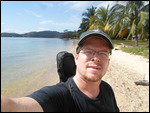
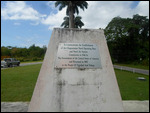
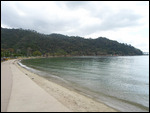
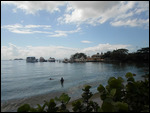
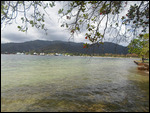
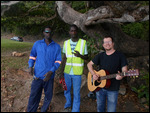
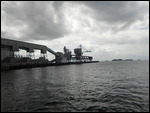
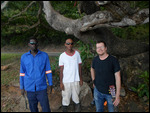
2025-05-22